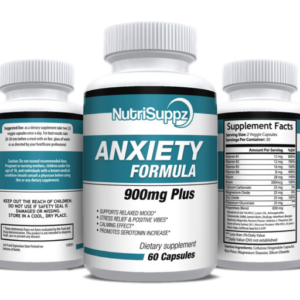12 Jun What Causes Anxiety Attacks?
What Causes Anxiety Attacks?
Also known as panic attacks, can be caused by a variety of factors, often involving a combination of biological, psychological, and environmental influences. Here are some common causes:
Biological Factors
Genetics: A family history of anxiety disorders can increase the risk of experiencing anxiety attacks.
Brain Chemistry: Imbalances in neurotransmitters, such as serotonin, norepinephrine, and gamma-aminobutyric acid (GABA), can contribute to anxiety.
Medical Conditions: Certain medical conditions, such as hyperthyroidism, heart disease, or respiratory disorders, can trigger anxiety symptoms.
Substance Use: Abuse of or withdrawal from drugs or alcohol can induce anxiety attacks.
Psychological Factors
Stress: High levels of stress, whether from work, school, relationships, or significant life changes, can precipitate anxiety attacks.
Trauma: Past traumatic experiences, such as abuse, accidents, or witnessing violence, can lead to anxiety disorders and panic attacks.
Personality: Certain personality traits, such as a tendency toward negative thinking, perfectionism, or being overly self-critical, can increase vulnerability to anxiety.
Environmental Factors
Lifestyle: Lack of sleep, poor diet, and lack of exercise can negatively impact mental health and contribute to anxiety.
Caffeine and Stimulants: Excessive consumption of caffeine or other stimulants can provoke anxiety symptoms.
Environmental Stressors: Ongoing exposure to stressful environments, such as a toxic workplace or a troubled relationship, can trigger anxiety attacks.
Triggering Events
Phobias: Specific phobias, such as fear of heights, flying, or public speaking, can lead to anxiety attacks when the person is exposed to the feared situation.
Social Situations: Social anxiety disorder can cause panic attacks in social or performance situations due to fear of embarrassment or judgment.
Health Concerns: Worrying excessively about health (hypochondria) can result in anxiety attacks, especially if the person misinterprets normal bodily sensations as signs of a serious illness.
Cognitive Factors
Catastrophic Thinking: Interpreting situations as far worse than they are can trigger anxiety. For example, thinking “I’m going to die” during a minor physical symptom.
Fear of Anxiety: Worrying about having an anxiety attack can actually trigger one, creating a vicious cycle.
Managing Anxiety Attacks
Understanding the potential causes is crucial for managing and preventing anxiety attacks. Here are some strategies:
Therapy: Cognitive-behavioral therapy (CBT) can help reframe negative thoughts and reduce anxiety.
Medication: Anti-anxiety medications or antidepressants may be prescribed by a doctor.
Lifestyle Changes: Regular exercise, a healthy diet, adequate sleep, and mindfulness practices like meditation or yoga can help reduce overall anxiety.
Avoidance of Triggers: Reducing caffeine, alcohol, and avoiding known stressors can prevent attacks.
Support Systems: Building a strong support network of friends, family, or support groups can provide emotional support.
If anxiety attacks are frequent or severe, it’s important to seek professional help from a healthcare provider to develop a personalized treatment plan.


No Comments